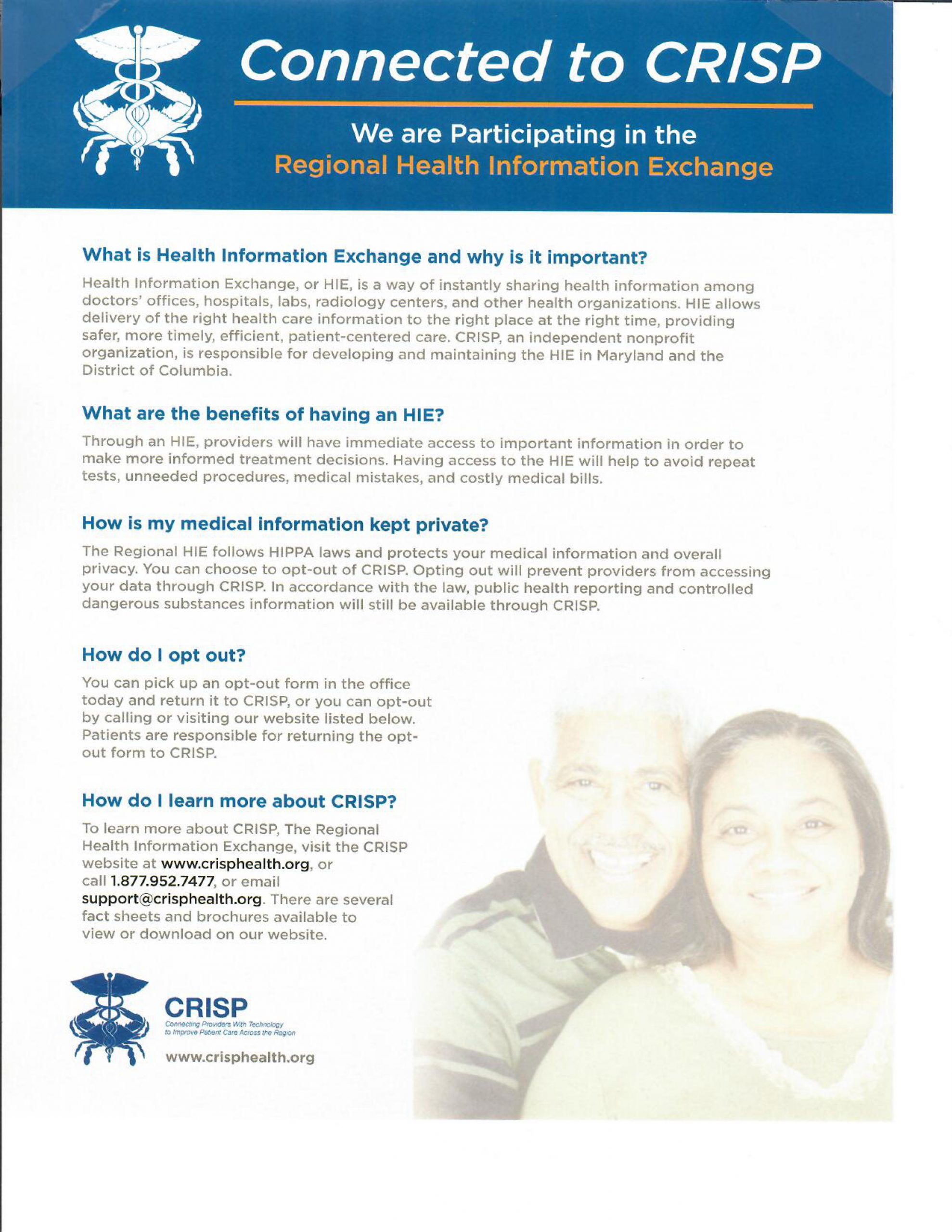Your Rights to Confidentiality
Arundel Lodge takes confidentiality very seriously. We follow very strict rules from the United States and Maryland Governments about when we can release your medical record—your protected health information.The Federal Health Insurance Portability and Accountability Act (HIPAA) Privacy Rule establishes a foundation of Federal protection for personal health information, carefully balanced to avoid creating unnecessary barriers to the delivery of quality health care. The Rule generally prohibits this program from using or disclosing your protected health information unless authorized by you, except as follows:
Without Opportunity to Object
We may use or disclose your protected health information in the following situations without your authorization or opportunity to object:
Public Health: for public health purposes to a public health authority or to a person who is at risk of contracting or spreading your disease.
Health Oversight: to a health oversight agency for activities authorized by law, such as audits, investigations, and inspections.
Abuse or Neglect: to an appropriate authority to report child abuse or neglect, if we believe that you have been a victim of abuse, neglect, or domestic violence.
Food and Drug Administration: as required by the Food and Drug Administration to track products.
Legal Proceedings: in the course of legal proceedings.
Law Enforcement: for law enforcement purposes, such as pertaining to victims of a crime or to prevent a crime.
Coroners, Funeral Directors, and Organ Donation: for the coroner, medical examiner, or funeral director to perform duties authorized by law and for organ donation purposes.
Research: to researchers when their research has been approved by an Institutional Review Board.
Soldiers, Inmates, and National Security: to military supervisors of Armed Forces personnel or to custodians of inmates, as necessary. Preserving national security may also necessitate sharing protected health information.
Workers’ Compensation: to comply with workers’ compensation laws.
Compliance: to the Department of Health and Human Services to investigate our compliance.
In general, we may use or disclose your protected health information as required by law and limited to the relevant requirements of the law.
Your Rights
You have the right to:
Inspect and copy your protected health information. However, we may refuse to provide access to certain psychotherapy notes or information for a civil or criminal proceeding.
Request a restriction of your protected health information. You may ask us not to use or disclose certain parts of your protected health information for treatment, payment or healthcare operations. You may also request that information not be disclosed to family members or
friends who may be involved in your care. Your request must state the specific restriction requested and to whom you want the restriction to apply. We are not required to agree to a restriction that you may request, but if we do agree, then we must behave accordingly.
Request to receive confidential communications from us by alternative means or at an alternative location. We will accommodate reasonable requests. We may also condition this accommodation by asking you for information as to how payment will be handled or specification of an alternative address or other method of contact. We will not request an explanation from you as to the basis for the request.
Ask your provider to amend your protected health information. You may request an amendment of protected health information about you. If we deny your request for an amendment, you have the right to file a statement of disagreement with us, and your medical record will note the disputed information.
Receive an accounting of certain disclosures we may have made. This right applies to disclosures for purposes other than treatment, payment, or healthcare operations. It excludes disclosures we may have made for you, for a facility directory, to family members or friends involved in your care, or for notification purposes. You have the right to receive specific information regarding these disclosures. The right to receive this information is subject to certain exceptions, restrictions, and limitations.
Obtain a paper copy of this notice from us, upon request, even if you have agreed to accept this notice electronically.
Updated August 2016. Printed from HIPAA in 24 Hours, and Overview of HIPAA Privacy Standards manuals with permission from the authors Roy Rada, M.D., Ph.D., & Susan Sugar Nathan.

